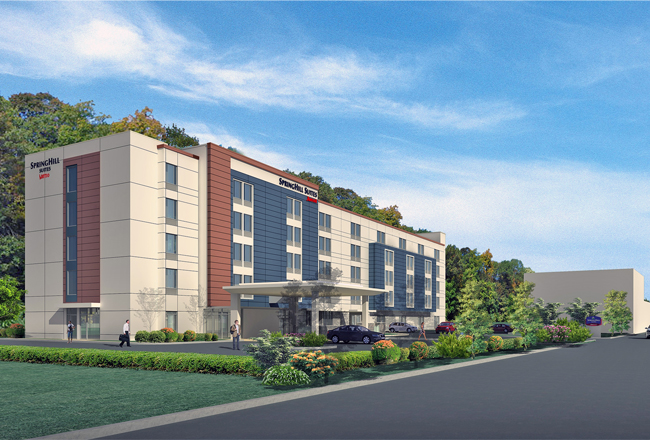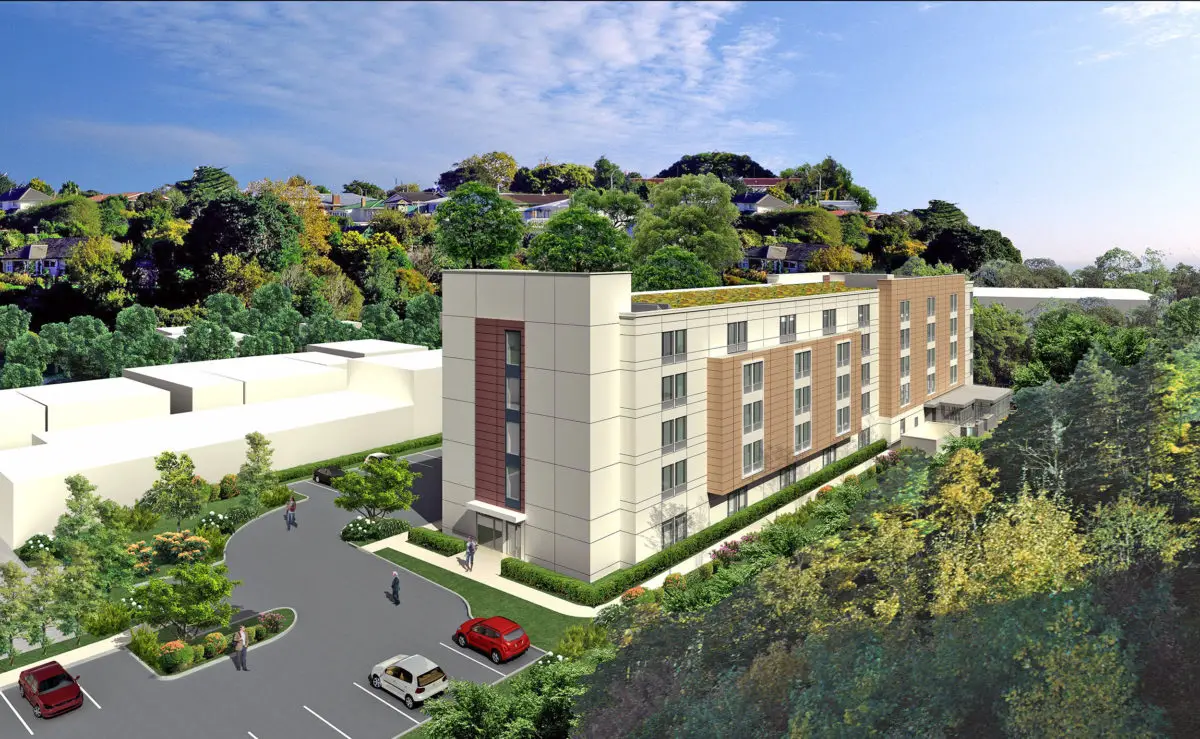Developer of $31 million Tuckahoe hotel says site remediation almost complete

The developer of a $31 million hotel and restaurant project on a former quarry and landfill in Tuckahoe said cleanup of the contaminated site is almost complete and construction will start soon.
The development has not been without controversy, however, as a community group has charged that the review process was not thorough.
Eastchester-based Bilwin Development Associates LLC received approval last year to build a five-story, 153-room Marriott Springhill Suites hotel at 109-125 Marbledale Road in the village. The 91,000-square-foot hotel will be built on an environmentally contaminated site once used as a marble quarry and later as a landfill dump. The project also includes a 6,000-square-foot standalone restaurant.
The site is undergoing a remediation process as part of the state”™s Brownfield Cleanup Program. Bill Weinberg, principal of Bilwin Development, said that contaminated materials on the site have been removed.
He characterized the hotel project as a low-impact use that will “bring in revenue and taxes to Tuckahoe and Westchester,” and also “clean up an old brownfield.”
The project was first proposed in 2014. Weinberg said there was a “dearth of hotel construction” at that time in southern Westchester. Despite an uptick in hotel construction in Yonkers since then, Weinberg said there is still a need for more hotel rooms in the area.
“There is still a great demand,” he said. “They are all at an extremely high occupancy level.”
 The hotel plan has been fought by a group of residents who say that the village did not give the plan a proper environmental review before approving it. In addition, the group alleges that the remediation and construction could expose the community to dangerous materials.
The hotel plan has been fought by a group of residents who say that the village did not give the plan a proper environmental review before approving it. In addition, the group alleges that the remediation and construction could expose the community to dangerous materials.
In 2015, the Tuckahoe Planning Board gave Bilwin Development”™s proposal for the site a conditional declaration that the project would ahve no adverse environmental impact under the state Environmental Quality Review Act. The condition to the declaration was that the developer adheres to requirements of the state”™s brownfield program, which is administered by the state Department of Environmental Conservation and Department of Health.
Soil and groundwater samples on the site by the state DEC found it was contaminated by a variety of materials, including polycyclic aromatic hydrocarbons (PAHs) and polychlorinated biphenyls (PCBs).
The planning board approved a site plan for the project in October 2016 by a 3-2 vote. The resolution required Bilwin Development to follow a community air monitoring program and remedial action work plan for the site monitored by the state.
The decision was met with protest in the village. A community group, the Marbledale Road Environmental Coalition, circulated an online petition last year that called for a full environmental review of the project.
Rachel Zolottev, a member of that coalition, said the group has more than 2,700 members who have signed its petition.
“This is a toxic hazardous waste issue,” Zolottev said in an email. “Our communities’ air and ground water must be protected right now from the current carcinogenic releases and exposures.”
The planning board”™s decision was also challenged in state court by a group of nine Tuckahoe residents. In November 2016, the group filed an Article 78 proceeding against the village planning board, building inspector, the state DEC and Department of Health and Bilwin Development Affiliates LLC.
David K. Gordon, a Poughkeepsie-based environmental attorney representing the plaintiffs, said that his clients want the site cleanup “to be done right.” To accomplish that, the village should have conducted a full environmental review for the project, Gordon said.
“But it”™s more than that, it is also that both the village and the DEC made very, very premature decisions to approve the project and to decide not to do an environmental impact statement,” he said. “Part of our argument is that they did the approvals without knowing really critical facts of the case.”
In May, acting state Supreme Court judge Larry J. Schwartz denied a petition from the group for a preliminary injunction to stop remediation efforts on the site. The lawsuit seeks, among other actions, to annul the negative SEQRA declaration and the site plan approval. A final ruling is pending.
Meanwhile, the slab for the foundation that will form part of the cap for the brownfield site is due to arrive shortly, Weinberg said. The site will be capped by a mix of cement, asphalt and topsoil. A Bilwin Development spokesperson said the developer will also install vapor extraction wells throughout the site, which allow decomposition vapors to exhaust through ventilation systems that clean and monitor the vented air.
Once the capping process is complete, the DEC will inspect the site before potentially declaring the remediation process closed, Weinberg said. After that, construction can begin.
Somers-based HydroEnvironmental Solutions Inc. is conducting the remediation work, overseen by the state DEC and Department of Health. The village also hired Omaha-based national environmental consulting firm HDR Inc. to review all work on the site.
In 2014, Bilwin Development was approved for $1.4 million in project tax incentives by the Westchester County Industrial Development Agency: $1.2 million in sales tax exemptions and $200,000 in mortgage recording tax exemptions. The IDA said at the time that the project will create 200 construction jobs and 80 permanent jobs, 30 at the hotel and 50 at the restaurant.
The hotel, Weinberg said, expects to attract business travelers both for Westchester and New York City during the week and tourists and wedding attendees on weekends.
An operator for the restaurant will be determined in the next couple months. The company is looking for something family-style, Weinberg said.
He expects construction to be complete by September 2018.